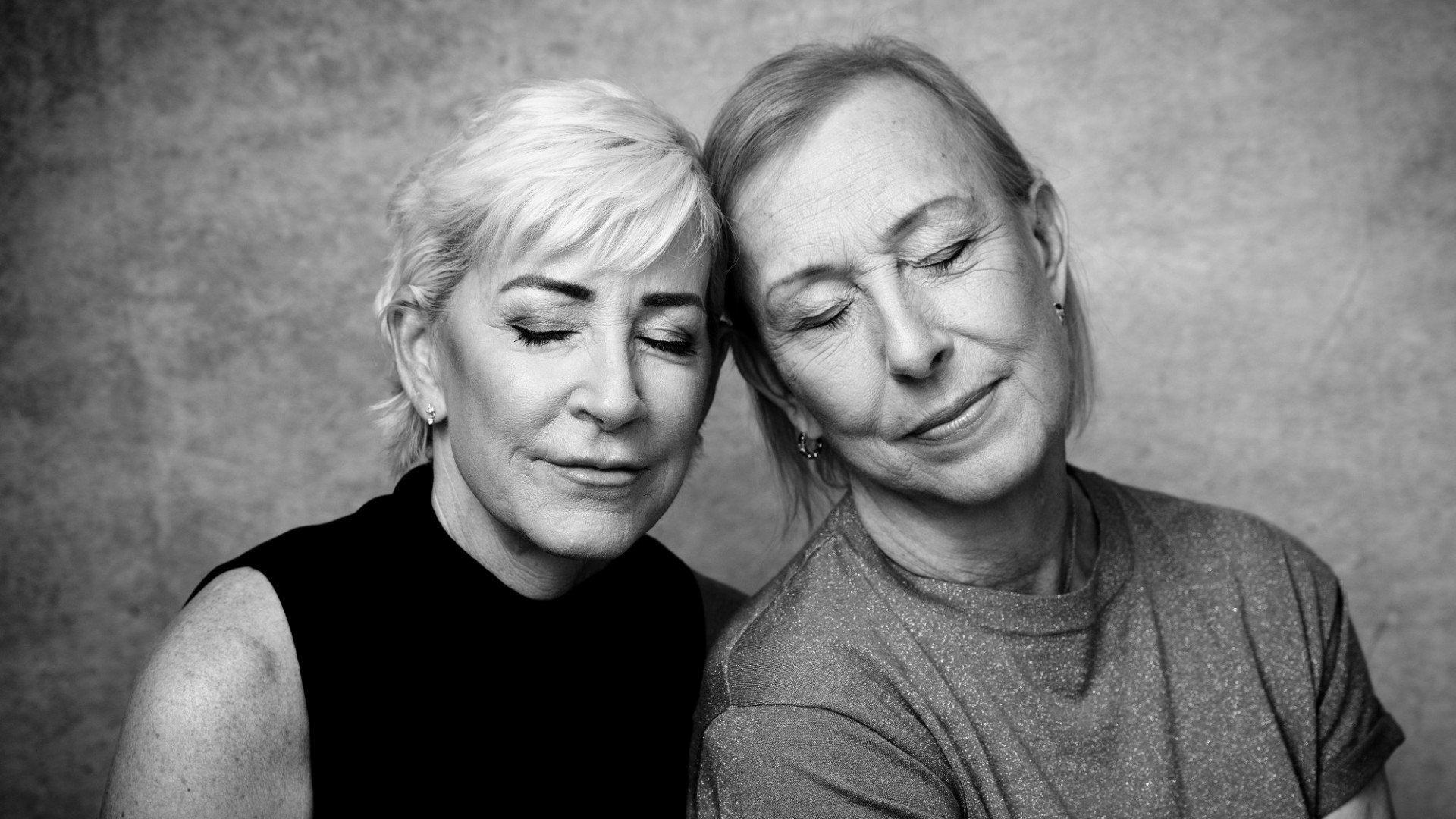The Meyer “Mike” Berger Award
The Berger Award, named after the late New York Times reporter Meyer “Mike” Berger, is awarded by the faculty of the Journalism School to a reporter or a team of reporters for an outstanding example of in-depth, human-interest reporting. The award is given annually at graduation. #BergerAward
The 2024 Mike Berger Award has been announced.
2024 Mike Berger Award Winner
2024 Berger Award Jurors’ Citation:
Sally Jenkins' richly nuanced story of the entwined rivalry and friendship of two tennis icons, Chris Evert and Martina Navratilova, won the Meyer Mike Berger Award for human interest reporting. Published in The Washington Post, "Bitter rivals. Beloved friends. Survivors." tells how two women fought each other fiercely on the highest level of their sport and developed a bond that deepened further after 50 years, when both were diagnosed with cancer. Exhaustively reported and beautifully written, Jenkins' piece is a great love story told with rigor, precision, and rare sensitivity.
The Meyer "Mike" Berger Award and its $1,500 prize is awarded for outstanding human interest reporting across platforms. Print, radio, broadcast and digital reporting are eligible for the award. All entries must have been published during 2023 in the U.S., though in the case of a series or ongoing story, work that appeared in January 2024 will be accepted. Journalists who report in a foreign language should submit copies of original stories with an English translation. No entry fee is required.
Members of the faculty of the Columbia University Graduate School of Journalism judge the entries for the Berger award. The award, which consists of a certificate from Columbia and a $1,500 prize, is conferred annually at the School’s Journalism Day ceremony in May.
Berger won a 1950 Pulitzer Prize for local reporting for his story on a veteran who went on a shooting spree in Camden, New Jersey, killing several residents. He then reintroduced the newspaper’s “About New York” column in the early 1950s, setting the standard for evocative and eloquent human-interest reporting. Berger passed away in 1959. Louis Schweitzer, a New York industrialist who admired Berger’s work, created the Berger Award in 1960.
2023
Lynzy Billing, ProPublica, “The Night Raids." Judges Joanne Faryon, Meg Kissinger and Dale Maharidge
2022
Evan Allen, Boston Globe, “Under the Wheel.” Judges Joanne Faryon, David Hajdu and Dale Maharidge
2021
Joe Sexton, ProPublica, "He’d Waited Decades to Argue His Innocence” Judges Joanne Faryon, Meg Kissinger and Dale Maharidge
2020
Thomas Curwen and Francine Orr, Los Angeles Times, "The Street Within" , an immersive series that followed eight residents of a homeless encampment who were fast-tracked to apartments in South Los Angeles. Judges Joanne Faryon, Meg Kissinger and Dale Maharidge
2019
Terrence McCoy, The Washington Post, A series on Americans who were challenged in deeply personal ways by some of the most significant political and social issues of the day including the opioid crisis and immigration: Parts 1, 2, 3, 4, 5. Judges Joanne Faryon, Meg Kissinger and Dale Maharidge
2018
John Woodrow Cox, The Washington Post, A series on children affected by gun violence: Parts 1 , 2, 3, 4, 5. Judges David Hajdu, Meg Kissinger and Karen Stabiner
2017
Eli Saslow, The Washington Post, A series showcasing pockets of suffering in white America: 1, 2, 3, 4, 5. Judges David Hajdu, Dale Maharidge and Paula Span
2016
Ken Armstrong and T. Christian Miller, The Marshall Project and ProPublica, “An Unbelievable Story of Rape.” Judges David Hajdu, Dale Maharidge and Ruth Padawer
2015
Joanne Faryon and Brad Racino, inewsource, “An Impossible Choice: Deciding When a Life is No Longer Worth Living.” Judges Andie Tucher, David Hajdu and Dale Maharidge
2014
Julia O’Malley, Anchorage Daily News, “The Things that Happen: Two Boys and Cancer.” Judges Andie Tucher, David Hajdu and Jonathan Weiner
2013
Sheri Fink, Freelance, A series of pieces exploring the catastrophic consequences of bureaucratic, structural, and political failures during the deadly hurricane season of 2012. Judges David Hajdu, Michael Shapiro and Andie Tucher
2012
John Branch, New York Times, “Punched Out: The Life and Death of a Hockey Enforcer.” Judges Sheila Coronel, Andie Tucher and Dale Maharidge
2011
Anne Barnard, New York Times, “A Parish Tested.” Judges Columbia Journalism School Faculty
2010
Joanna Connors, The Plain Dealer, "The Sheltering Sky.” Judges Columbia Journalism School Faculty
2009
Brendan McCarthy, Times-Picayune, "Homicide 37." Judges Columbia Journalism School Faculty
2008
Michael Paulson, The Boston Globe, "Ma Siss’s Place: The Birth of a Church." Judges Columbia Journalism School Faculty
2007
Abigail Tucker, The Baltimore Sun, 2006 Reporting. Judges Columbia Journalism School Faculty
Judges
The Berger Award is judged by Columbia Journalism School faculty.
Contact
212-854-6468
[email protected]
Sign up for the Columbia Journalism Awards quarterly newsletter to receive information on prize open and close dates, entry requirements and prizewinners. Our newsletter is the best way to stay in the know on all things related to the journalism awards at Columbia University.
